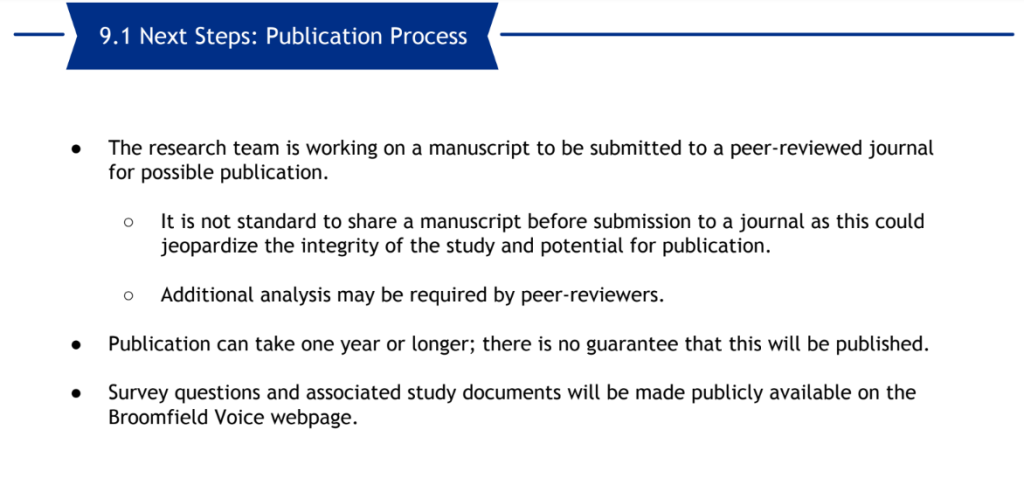Researchers with a long history of publishing deeply flawed studies targeting Colorado’s oil and natural gas industry – who have been previously criticized by state regulators – are out with a $55,217 survey that polled residents in Broomfield, Colo. on the health impacts of development that relies on faulty methodology.
A public meeting to present the findings to funders (i.e. taxpayers) is scheduled for Thursday, although the researchers acknowledge (slide 30) that the findings have not been fully released to the public or peer-reviewed, explaining:
“It is not standard to share a manuscript before submission to a journal as this could jeopardize the integrity of the study and potential for publication.”

The survey was funded by the City and County of Broomfield and polled 427 people who lived within 1 mile, 1-2 miles, or more than 2 miles from the six well pads operated by a Denver-based E&P “to determine if residents living near [unconventional oil and gas development] sites within [City and County of Broomfield] experience a greater frequency and number of health symptoms than residents living at further distances.”
However, a review of the results of the survey, which have only been partially published, shows that this research ignores the impacts of COVID-19 and other local economic activities, hinges on incomplete information, and was likely undermined by perception bias.
Read the full post on EIDHealth.org.
The post Taxpayers Beware: Broomfield Health Survey Ignores Key Context appeared first on .
This post appeared first on Energy In Depth.
